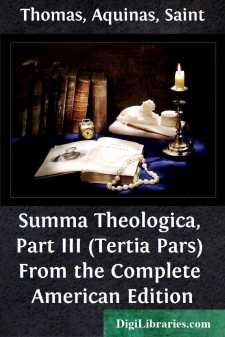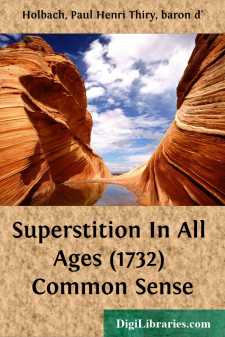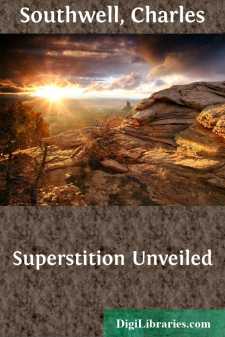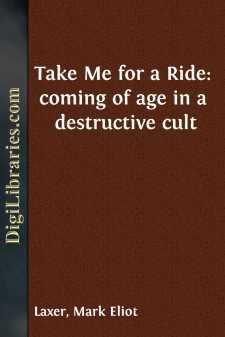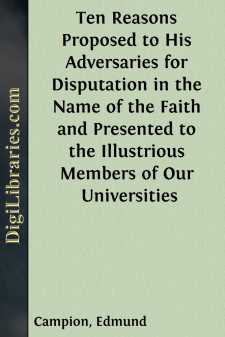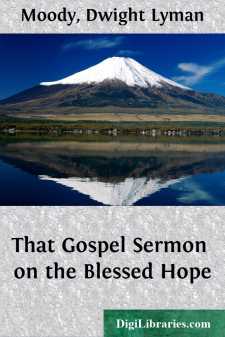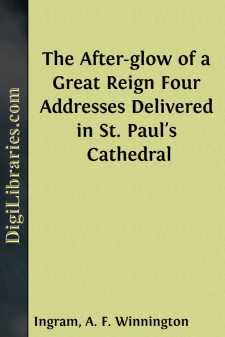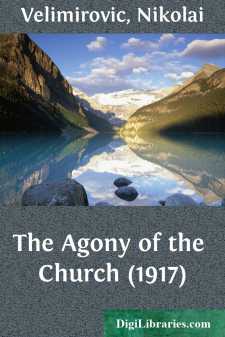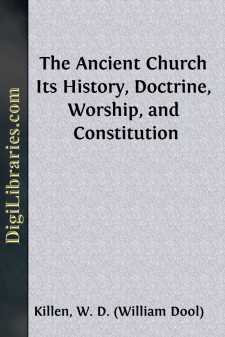Religion
- Agnosticism 2
- Antiquities & Archaeology 21
- Atheism 12
- Biblical Criticism & Interpretation 15
- Biblical Meditations 3
- Biblical Reference 1
- Biblical Studies 11
- Buddhism 8
- Christian Church 52
- Christian Education 5
- Christian Life 26
- Christianity 60
- Cults 2
- Devotional 6
- Eastern 2
- Education 4
- Eschatology 1
- Ethics 3
- General 60
- Gnosticism 1
- Hinduism 15
- History 28
- Holidays 10
- Inspirational 1
- Islam 8
- Judaism 3
- Leadership 1
- Meditations 3
- Monasticism 1
- Mysticism 11
- Philosophy 4
- Prayer 26
- Prayerbooks 5
- Religion & Science 12
- Sermons 54
- Spirituality 53
- Theism 2
- Theology 17
- Theosophy 15
Religion Books
Sort by:
by:
Aquinas Thomas
In a few places, where obvious errors appeared in the Benziger Brothers edition, I have corrected them by reference to a Latin text of the Summa. These corrections are indicated by English text in brackets. For example, in Part I, Question 45, Article 2, the first sentence in the Benziger Brothers edition begins: "Not only is it impossible that anything should be created by God…." By...
more...
I.—APOLOGUE. There is a vast empire governed by a monarch, whose conduct does but confound the minds of his subjects. He desires to be known, loved, respected, and obeyed, but he never shows himself; everything tends to make uncertain the notions which we are able to form about him. The people subjected to his power have only such ideas of the character and the laws of their invisible sovereign as...
more...
SUPERSTITION UNVEILED. Religion has an important bearing on all the relations and conditions of life. The connexion between religious faith and political practice is, in truth, far closer than is generally thought. Public opinion has not yet ripened into a knowledge that religious error is the intangible but real substratum of all political injustice. Though the 'Schoolmaster' has done much,...
more...
by:
Mark Eliot Laxer
1. Bicycle Ride—Walden After I left Rama's inner circle in 1985, I occasionally bicycled to Walden Pond, where I read about Thoreau's experiment with self-reliance. My seven years in the cult of Rama—Dr. Frederick Lenz, who was known early on as Atmananda—had deeply shaken my confidence. Atmananda often assured me that I was possessed by Negative Forces, that I was barely able to...
more...
CHAPTER I. A Matter of Importance IN THAT part of the celebrated parish of St. George which is bounded on one side by Piccadilly and on the other by Curzon Street, is a district of a peculiar character. 'Tis cluster of small streets of little houses, frequently intersected by mews, which here are numerous, and sometimes gradually, rather than abruptly, terminating in a ramification of those...
more...
by:
Edmund Campion
1. THE SIGNIFICANCE OF THE Decem Rationes. The chief point to remember is that the Decem Rationes was the last and most deliberate free utterance of Campion's ever-memorable mission. During the few months that mission lasted he succeeded in staying the full tide of victorious Protestantism, which had hitherto been irresistible. The ancient Church had gone down before the new religion, at...
more...
In 2 Timothy, 3:16, Paul declares: "All scripture is given by inspiration of God, and is profitable for doctrine, for reproof, for correction, for instruction in righteousness;" but there are some people who tell us when we take up prophecy that it is all very well to be believed, but that there is no use in one trying to understand it; these future events are things that the church does not...
more...
HER TRUTHFULNESS. "Behold, Thou requirest truth in the inward parts."—Psalm li. 6. We stand to-day like men who have just watched a great sunset. On some beautiful summer evening we must all of us have watched a sunset, and we know how, first of all, we see the great orb slowly decline towards the horizon; then comes the sense of coming loss; then it sets amid a blaze of glory, and then it is...
more...
INTRODUCTORY THOUGHTS If the official churches have had no other merit but that they have preserved Christ as the treasury of the world, yet they are justified thereby. Even if they have solely repeated through all the past centuries "Lord! Lord!" still they stand above the secular world. For they know at least who the Lord is, whereas the world does not know. Churches may disappear, but The...
more...
CHAPTER I. THE ROMAN EMPIRE AT THE TIME OF THE BIRTH OF CHRIST. Upwards of a quarter of a century before the Birth of Christ, the grandnephew of Julius Caesar had become sole master of the Roman world. Never, perhaps, at any former period, had so many human beings acknowledged the authority of a single potentate. Some of the most powerful monarchies at present in Europe extend over only a fraction of...
more...


